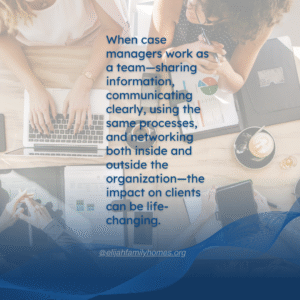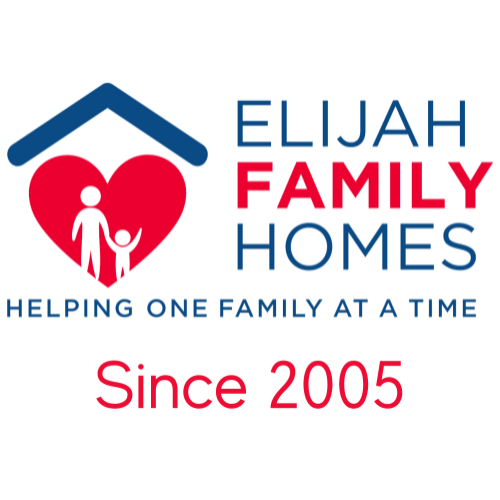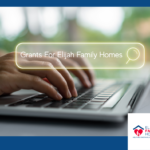Teamwork Makes the Difference in Case Management
Teamwork and information sharing are at the heart of how PCAP (Parent-Child Assistance Program) case managers support their clients. Our case workers collaborate daily, communicate, and share vital resources to help clients overcome barriers and reach their goals.
A recent success story perfectly illustrates the powerful impact of effective teamwork. A PCAP client—an employed, engaged mother of three working diligently on her sobriety—was living in a situation that, while not dangerous, had become emotionally toxic. She was renting a shared space and longed for a place of her own. Financial barriers and past issues complicated her housing search.
She turned to her case manager for guidance. The two worked together to find potential rentals. Still, the breakthrough came when another case manager shared information about a local agency offering funding for a security deposit and the first month’s rent. That shared knowledge changed everything. The client successfully moved into her own three-bedroom apartment with her daughters.
This transformation—from a struggling, desperate mom to a career-driven, stable, and hopeful parent—was made possible by a team that values trust, communication, and collaboration.
3 Ways to Build Better Teamwork Among Case Managers

Strong internal teamwork doesn’t just happen—it’s built intentionally. Here are three key ways to foster better collaboration among case managers:
1. Use Clear Communication Skills
Open, respectful, and frequent communication is essential. Team members should feel comfortable sharing challenges and celebrating successes. Regular check-ins, team huddles, and encouraging dialogue build trust and reduce duplication of effort. For example, a weekly team meeting where case managers share new community resources or discuss difficult client situations can lead to unexpected solutions and quicker support.
2. Create Processes Everyone Can Use
Having shared tools and processes ensures everyone is on the same page. Whether it’s a centralized database of community resources or standard intake procedures, unified systems reduce confusion and help everyone work more efficiently. For example, a shared spreadsheet or case management software that logs new housing resources or funding programs can be a game-changer for client support.
3. Establish a Shared Point of Reference
Everyone should know where to find essential information. Whether it’s a digital folder, a team binder, or an intranet page, having one go-to place for policies, resources, and community contacts avoids miscommunication and saves time. Example: A monthly living resource document that’s reviewed and updated monthly keeps everyone aware of what’s available and who to contact.
Don’t Forget: Networking Is Part of Teamwork Too

Networking isn’t just about shaking hands or exchanging emails. It’s about building meaningful relationships that benefit your clients.
Internally, strong relationships within your organization build trust and openness, leading to better outcomes. Externally, networking with local agencies, nonprofits, and community groups can open doors to resources your clients need but you wouldn’t otherwise know about.
In the story above, the funding that changed everything came not from the original case manager but from another who had been actively networking and keeping tabs on available support.
Final Thoughts
When case managers work as a team—sharing information, communicating, using the same processes, and networking inside and outside the organization—the impact on clients can be life-changing. The story of the PCAP client who went from a toxic housing situation to a place of her own is just one example of what’s possible when collaboration leads the way.
Let’s continue to build strong teams that support one another as fiercely as we help our clients.




